I want to start by saying this is a judgment-free zone. I’ve done both breastfeeding and bottle feeding, and I truly believe that the most important thing is a healthy baby and a happy mama.
So, whether you’re breastfeeding, bottle feeding, or doing a combination of both like I did, you’re winning! I feel confident in sharing my experience on both, and I’m here to help you feel good about whatever choice you make.
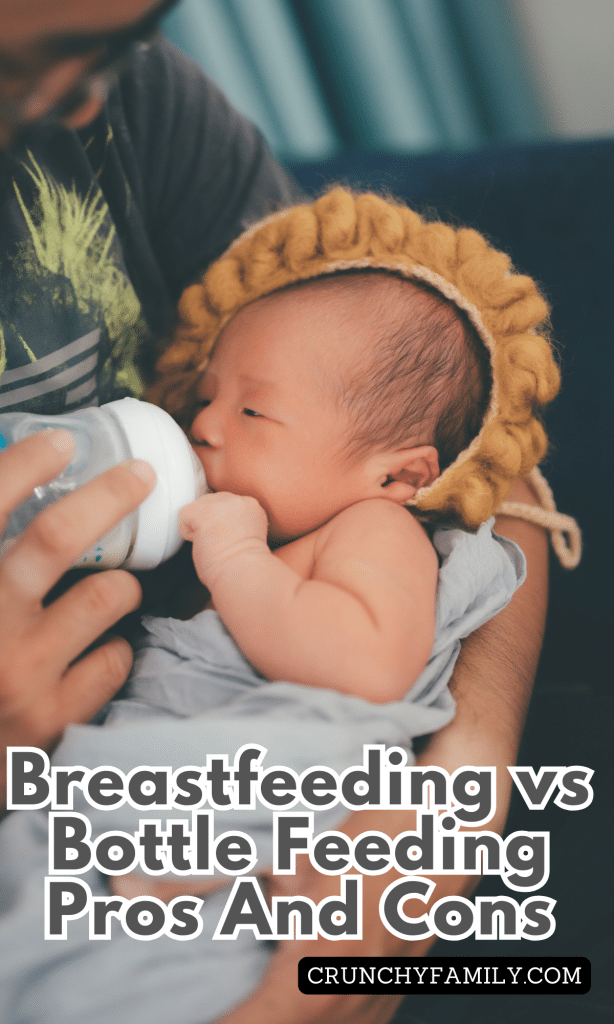
Pros of Breastfeeding
Breastfeeding offers numerous health benefits for both mom and baby. Breastfed babies receive natural antibodies from their mothers, which help strengthen their immune systems.
Human breast milk is perfectly designed to meet a baby’s nutritional needs and changes composition to adapt to the growing baby. It’s also always at the right temperature and ready to go, which is a huge plus during those late-night feedings.
Breast milk aids in brain development and has been linked to higher scores on intelligence tests. For moms, breastfeeding can help in postpartum recovery and reduce the risk of certain health problems, like high blood pressure and postpartum depression.
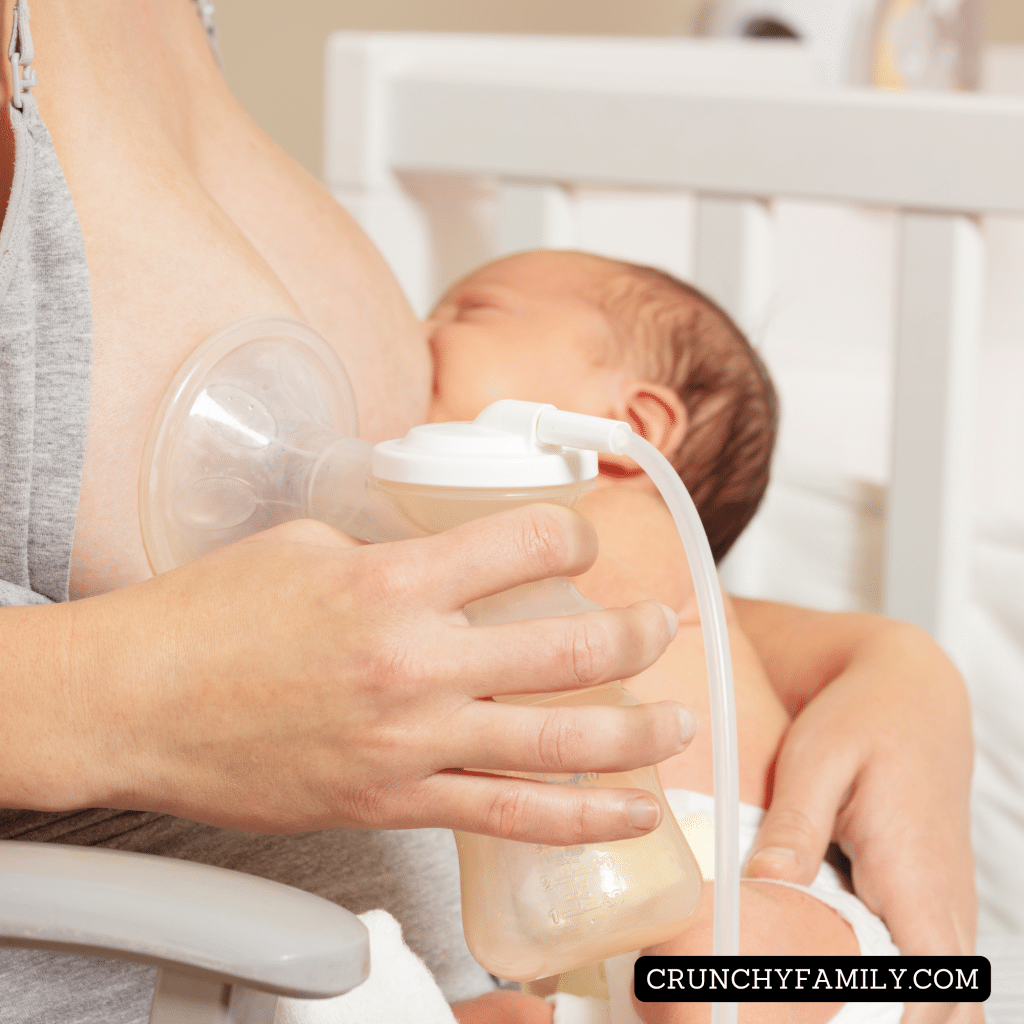
- Natural Antibodies: Strengthens baby’s immune system.
- Nutritional Adaptability: Changes composition to meet baby’s needs.
- Convenience: Always at the right temperature and ready.
- Brain Development: Linked to higher intelligence test scores.
- Postpartum Recovery: Helps moms recover and reduces certain health problems.
Cons of Breastfeeding
However, breastfeeding isn’t without its challenges. Some moms experience sore nipples, low milk supply, or other lactation issues. In some cases, maternal medical conditions or medications might make breastfeeding less feasible.
It’s also time-consuming and can be demanding, especially in the early months of a baby’s life. For many women, the pressure to produce enough milk and the physical demands of breastfeeding can be overwhelming.
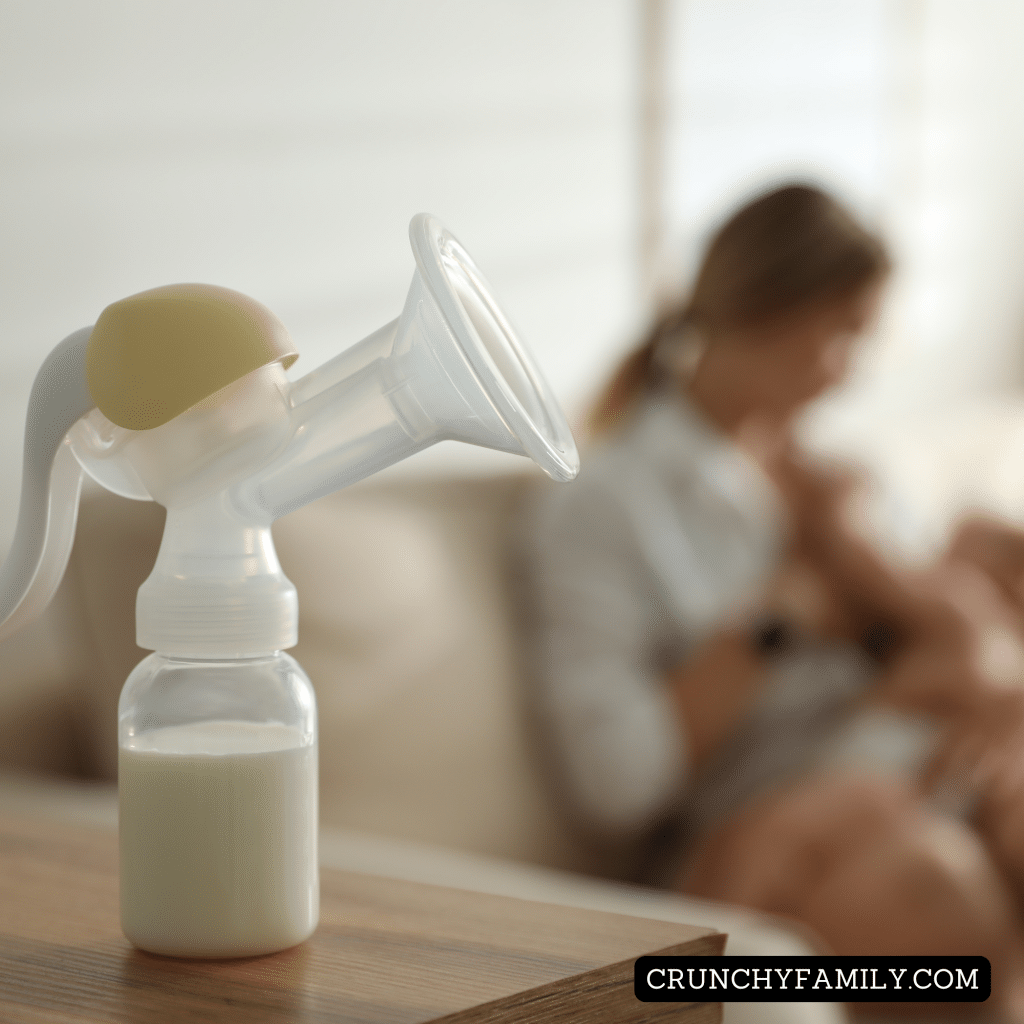
- Physical Discomfort: Can cause sore nipples and other lactation issues.
- Time-Consuming: Demanding, especially in early months.
- Health Constraints: Not always feasible with certain maternal medical conditions or medications.
- Pressure: Stress from producing enough milk.
Pros of Bottle Feeding
Bottle feeding, whether with expressed milk or infant formula, offers flexibility and convenience. It allows other family members to participate in feeding, giving mom a much-needed break.
This can be a good idea, especially for new moms who need rest or are recovering from childbirth. It’s also easier to measure how much your baby is consuming, which can be reassuring for parents worried about their baby’s intake.
Formula-fed babies also have a consistent source of nutrients, which can be especially beneficial for preterm infants or babies with specific nutritional needs.
Modern commercial formulas are designed to be as close as possible to human milk, and there are hypoallergenic formulas available for babies with allergies.

- Flexibility: Allows family members to feed baby.
- Monitoring: Easier to measure baby’s intake.
- Nutritional Consistency: Provides stable nutrients, beneficial for preterm infants.
- Hypoallergenic Options: Available for babies with allergies.
Cons of Bottle Feeding
On the downside, formula feeding can be costly and requires sterilization equipment. There’s also a higher risk of health problems like ear infections and gastrointestinal issues in formula-fed infants compared to breastfed infants.
Additionally, preparing bottles and cleaning up afterward takes time and effort.
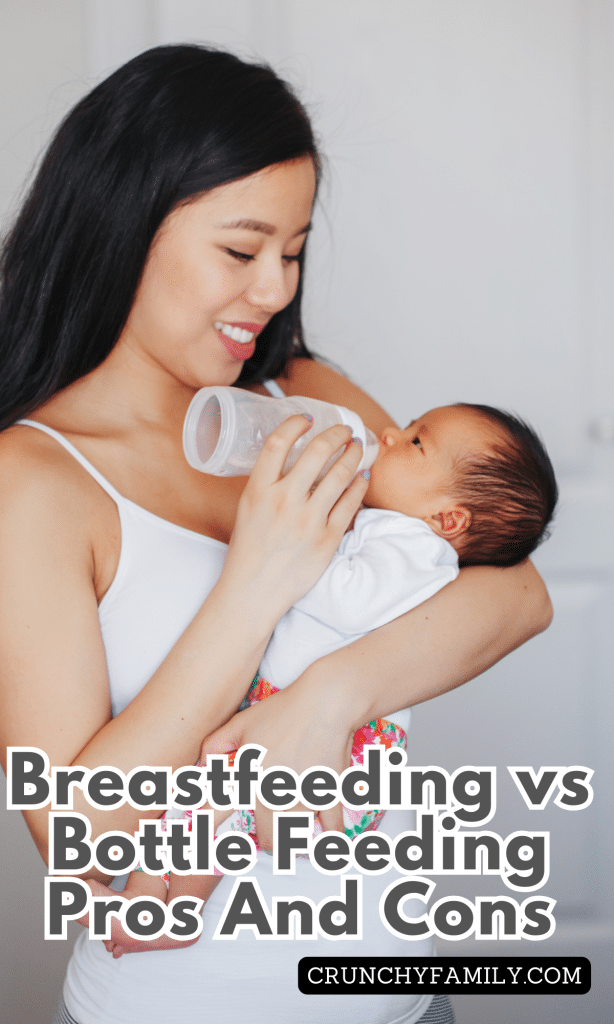
- Cost: Formula feeding can be expensive.
- Preparation: Requires clean water and sterilization equipment.
- Health Risks: Higher risk of ear infections and gastrointestinal issues.
- Time and Effort: Preparing bottles and cleaning up afterward.
Many parents find that a combination of breastfeeding and bottle feeding works best for them. Using a breast pump to express milk can provide flexibility while ensuring that babies still get the health benefits of breastfeeding.This approach can also be helpful for moms who return to work or need to be away from their baby for extended periods.
Working with a lactation consultant or healthcare provider can help address any concerns or challenges with breastfeeding. They can provide valuable guidance on best practices and help ensure that your baby is getting the nutrients they need.

Ultimately, the most important thing is finding what works best for you and your baby. Health experts agree that both breast milk and formula can provide a good start in life, and your personal decision should be based on what feels right for your family.
Whether you choose exclusive breastfeeding, baby formula feeding, or a combination of both, you’re making a healthy choice for your baby’s needs.
Remember, there is no wrong choice when it comes to feeding your baby. Both breastfeeding and bottle feeding have their pros and cons, and what matters most is that your baby is healthy and you are happy.
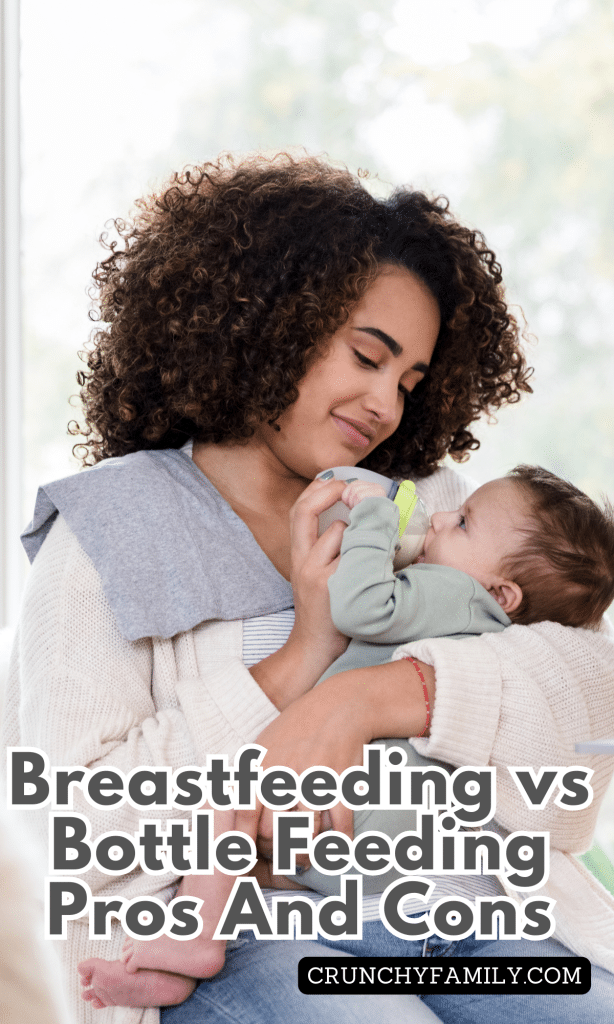
Trust yourself, lean on your support system, and know that you are doing a fantastic job. Healthy baby, happy mama – that’s the goal.
- Breastfeeding Tracker Printable For Newborn Moms
- What Is Baby Led Weaning Breastfeeding And Is It For You?
- Breastfeeding Is Not Supposed to Be Painful
- On Demand VS Scheduled Breastfeeding: Which One Is Best For you?
- What to Wear to Bed When Breastfeeding
- 17 Effective Ways To Reduce Anxiety When Breastfeeding
More related reads:
1 thought on “Breastfeeding vs Bottle Feeding: Pros and Cons”